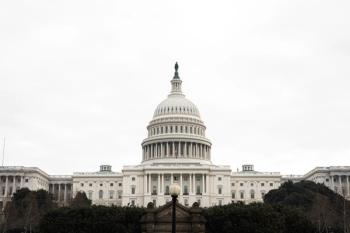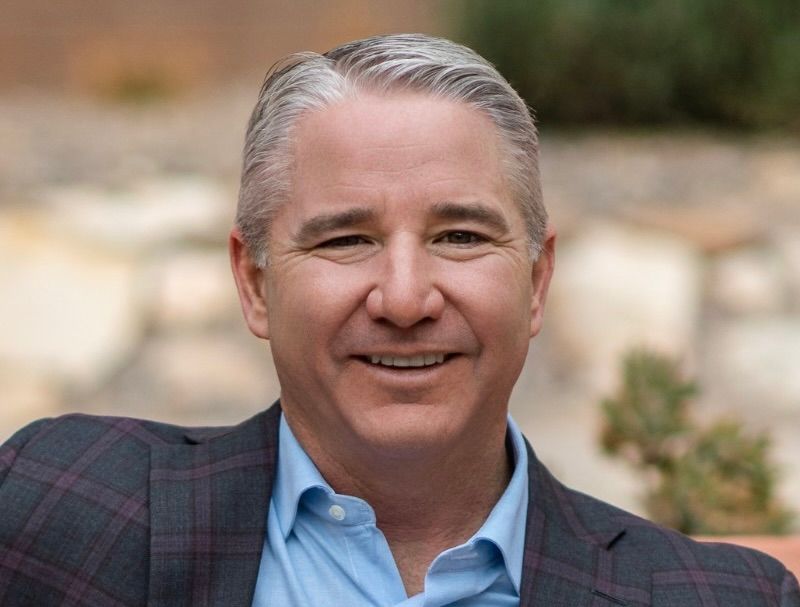
Telehealth
Latest News
Latest Videos

Podcasts
More News

Organizations are calling on Congress to end the shutdown and extend tax credits for the Affordable Care Act.

A new survey of healthcare executives shows it’s emerged as a top priority, even as they acknowledge some digital investments have been slow to show returns.

Telehealth and hospital-at-home programs have been disrupted by the government shutdown.

The company partners with a number of health systems to operate small hospitals with a telemedicine concept, and more are in the works.

Medicare waivers supporting telehealth programs expired Oct. 1. Providers are angry over an interruption that they say should have been avoided and needs to be resolved.

Small-format neighborhood hospitals offer a cost-efficient, joint venture partnership model with health systems.

The shutdown began Wednesday, affecting telehealth and hospital-at-home programs. Providers have implored lawmakers to extend tax credits for the Affordable Care Act and address other key programs for hospitals.

The government’s spending legislation expired, along with extensions for waivers for telehealth programs. The congressional stalemate affects hundreds of hospitals offering acute care at home.

Congress has yet to agree on a spending plan, and one of the big healthcare priorities centers on telehealth, including hospital-at-home programs.

More health systems have launched programs to provide acute care in the home. Lawmakers are working to ensure those programs can continue.

The legislation includes a provision ensuring Americans can get access to telehealth on a pre-deductible basis. Kyle Zebley of the American Telemedicine Association says the measure helps millions of patients.

A closer look at patient experiences and preferences shows a growing preference for virtual specialty care, along with more access to higher quality providers.

The Virginia Telemental Health Initiative partners with clinics to offer free telehealth services to patients. Leaders of the program talk about the effort, its expansion and keys to success.

Most of the system’s patients live in rural communities in the Midwest. Bill Gassen, Sanford’s CEO, talks with us about reducing healthcare barriers in the heartland.

Congress agreed to a short-term spending package to preserve virtual care and hospital-at-home programs. Lawmakers didn’t reverse cuts in Medicare payments to physicians.

Emerus has partnered with several health systems to build small hospitals. Rachel George, chief medical officer of Emerus, talks about the company’s growth, increasing access and its telehealth model.

Health systems have pressing priorities from the new administration and Capitol Hill. Lisa Kidder Hrobsky of the American Hospital Association talks about what hospitals are seeking in Washington.

Congress approved a package that extends telehealth programs into March, but advocates are pushing for a longer deal. Kyle Zebley of the American Telemedicine Association talks about the wins and losses and the road ahead.

Lawmakers added measures to extend telehealth and hospital-at-health programs to a bill to avoid a government shutdown. But the spending plan fell apart.

The co-founder of the telehealth company talks about the growth of virtual care, its value in behavioral health, and what deserves more attention.

Federal waivers for telehealth programs, including hospital-at-home programs, are slated to expire Dec. 31. Fitch says failing to extend home hospital programs would be a financial blow to nonprofit hospitals.

The federal government said it will allow remote prescriptions of controlled substances to continue. Health advocacy groups urged federal officials for an extension.

Dr. Chris Bucciarelli of BayCare talks about the Florida system’s work to use technology to help more patients with chronic conditions.

Health systems are hoping lawmakers address some key issues before the end of the year, when some key programs are slated to expire. For hospitals, billions of dollars are at stake.

The organization is backing legislation to help underserved groups as part of its Global Health Equity Week. HIMSS is asking Washington to support telehealth, maternal health and data modernization.

































































































